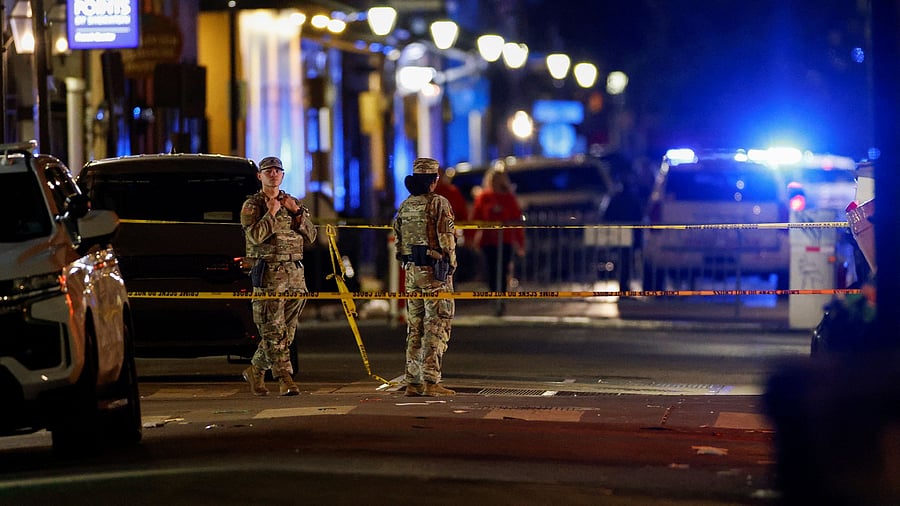
Military personnel stand near the site where people were killed by a man driving a truck in an attack during New Year's celebrations, in New Orleans, Louisiana, U.S., January 1, 2025.
Credit: Reuters Photo
Shamsud-Din Bahar Jabbar has more than a decade’s worth of experience in the military, records show.
Jabbar, who police said drove a pickup in a deadly attack in New Orleans early Wednesday, served in the Army from March 2007 until January 2015 and deployed once to Afghanistan, before serving in the Army Reserve until July 2020, according to a US Army release. He left with the rank of staff sergeant.
According to the Army’s statement, Jabbar was a human resource specialist and information technology specialist. He told a reporter in 2015 that he spent most of his military career as an information technology specialist, running a help desk. The Army awarded him several medals for good conduct and achievement, as well as for completing parachute jump school.
In 2012, he listed his employer’s address on a court document as the U.S. Army John F Kennedy Special Warfare Center and School at Fort Liberty — then known as Fort Bragg — in North Carolina.
In recent years, extremism in the military has been a growing concern of some lawmakers and members of the public. A 2023 report commissioned by the Defense Department found no elevated presence of violent extremism among active duty troops, but noted that extremism did seem to be elevated among veterans.
“For the veterans’ community in particular, loss of military identity appears to have a strong association with difficult adjustments to civilian life that can in turn contribute to negative behaviors,” the report said.
Texas, where Jabbar lived, has a particularly fraught history with veterans and violence. In 2009, an Army major and psychiatrist killed 13 people and wounded more than 30 others at a readiness processing center at Fort Hood, now called Fort Cavazos. In 2016, an Army Reserve veteran ambushed police officers in Dallas, killing five of them.
And in what is perhaps the most notorious mass shooting in the state, the 1966 shooting at the University of Texas at Austin, a former Marine sniper killed 15 people, shooting many of them from a clock tower on the university’s campus.